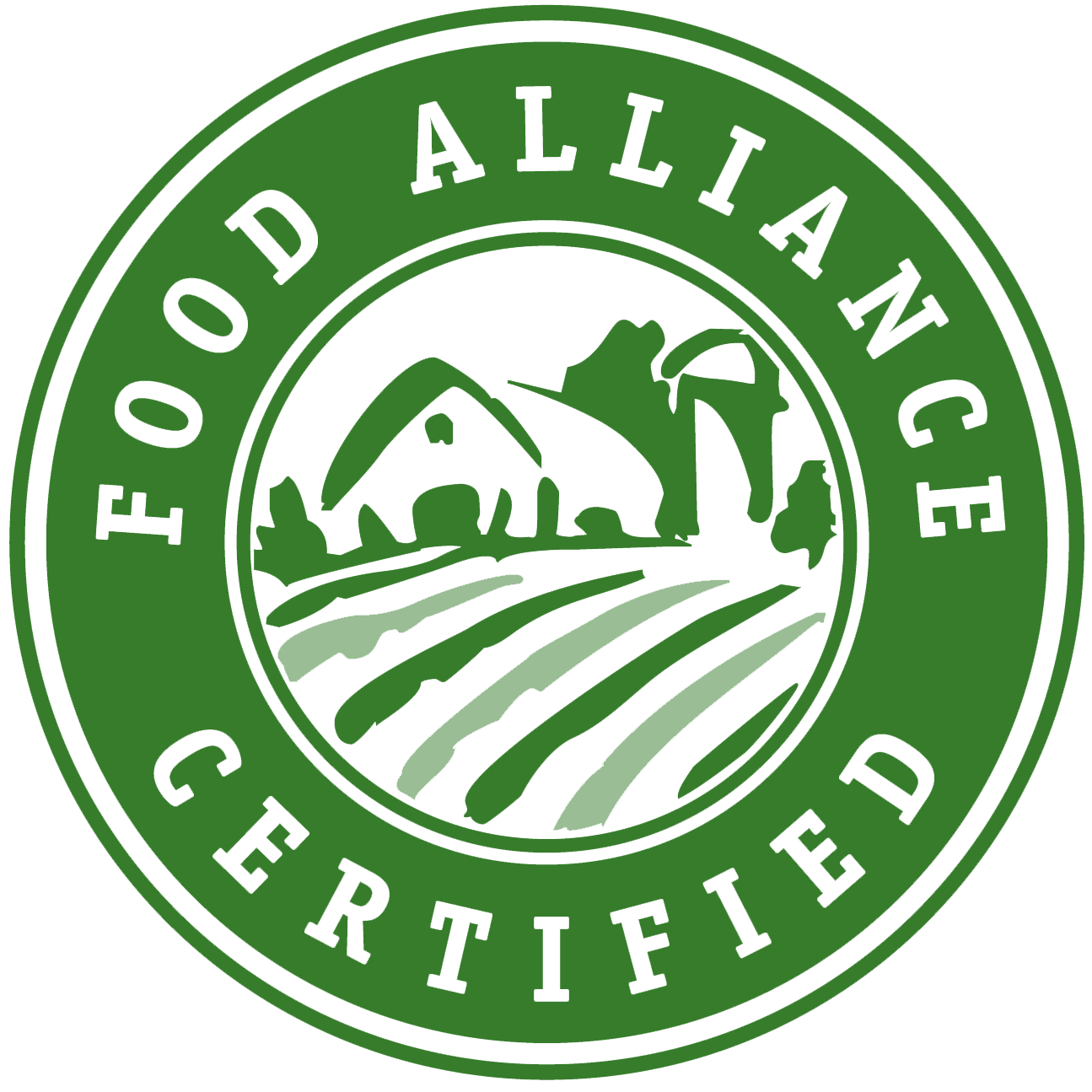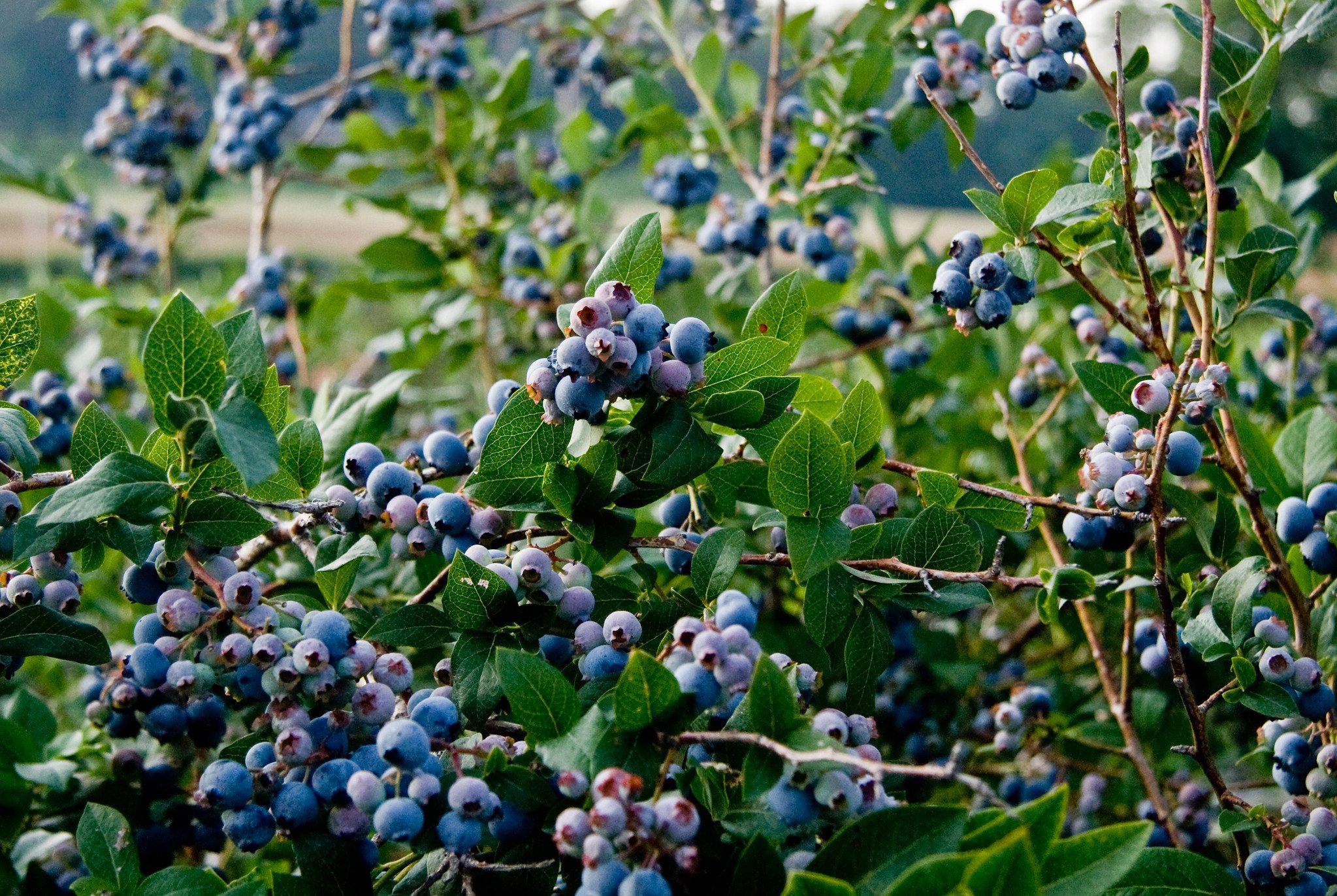Client Spotlight: Stahlbush Island Farms
“As founders and owners of a farm, one of your goals is always to improve your asset base, your soil base, hoping your children and your grandchildren and your great-grandchildren will ultimately farm that ground,” says Karla Chambers, cofounder, with her husband, Bill, of Stahlbush Island Farms in Oregon’s Willamette Valley. “You would never want to leave that asset in worse condition for your grandchildren. So your whole mindset is continuous improvement.”
The Chambers family early in their farming career
That mindset is as core to the Chambers’ business now as it was when they planted their first 300 acres in 1985. And it is what led Stahlbush Island Farms to become the first Food Alliance certified sustainable farm back in 1997. “There was a clear need for an organization that could help tell the story of the good that was occurring on the farm, while adding verification and credibility to sustainability claims. Bill and Karla were involved with Food Alliance from its inception,” says Tina Galloway, Director of Quality and Environmental Compliance.
Nearly three decades later, the farm—which now comprises 5,000 acres—continues to be a Food Alliance Certified Producer and sustainability leader. The Chambers have pioneered innovative resource management, land stewardship, and packaging solutions that have pushed their industry, with the goal of leaving not only their own land but our food systems in better shape for future generations.
Growing together
They grow, process and distribute over twenty varieties of fruits and vegetables
Karla and Bill Chambers met as economics students at Oregon State University, and a shared understanding of responsible budgeting—be it fiscal or ecological—has steered their business objectives from the start. They began with just two crops—sugar beets and soft white wheat—and have steadily and sustainably expanded the farm into a large operation that grows, processes, and globally distributes over twenty varieties of fruits and vegetables under three in-house brands. “There is no such thing as waste,” Bill says, “only underutilized resources.” Resources, for example, like the fruit and vegetable processing byproducts that fuel the farm’s onsite biogas plant, which generates more than enough electricity to power the farm (the rest is sold back to the grid) and produces rich organic fertilizers. This aligns with the Chambers’ vision of sustainability, which counts self-sufficiency as a core tenet.
While almost a third of their operation is also certified organic, the Chambers feel that Food Alliance sustainability certification most fully exemplifies their holistic approach to land and resource management. “It’s a whole farm audit,” explains Karla, describing the Food Alliance certification process. “They’re looking at our farming practices, what we’re doing to enhance wildlife, soil and water conservation, the biogas plant.” Food Alliance takes every factor of Stahlbush Island Farm’s operations into account—including employee well-being and social responsibility—when assessing its overall sustainability, with the understanding that each individual part influences and is influenced by the others.
It’s also about constantly innovating ways to serve your community better. The Chambers have always been early adopters, and sometimes inventors, of new technology that benefits consumers. Stahlbush Island Farms was one of the first companies to switch to BPA-free processing and packaging materials, and in 2010 they worked with a packaging company to develop a 100 percent biodegradable freezer bag to replace the polyethylene bags used in their frozen products. Their team is continually working to develop more sustainable packaging options. Their vision also extends well beyond their fields and packaging to their wider community and the business donates one million servings of food to Oregon food banks every year. “Sustainability is about sustaining your community,” says Karla.
Searching for better ways
Growing and innovating is important to both organizations, “Food Alliance understands that sustainability is a journey, and we aren’t ever going to ‘arrive’. They have built continuous improvement right into their standards. At Stahlbush, we constantly push ourselves to get better than we were before. Not every new idea is successful, but our culture of searching for better ways leads to long-term improvement,” says Tina.
Harvesting spinach at Stahlbush Island Farms
Stahlbush continues to focus on innovation and technology to drive their sustainability efforts. They recently invested in new tillage equipment that reduces the number of passes in the field, helping to conserve resources and reduce compaction. They continue to explore technology that further increases the accuracy of tractor operations and provides real-time data for better decision-making. Although they already use moisture monitoring tools for irrigation, they were recently a beta-testing site for some new soil moisture monitoring technology. During this process, they provided feedback to the manufacturer to support additional improvement. They have further expanded their cooperative work to support native pollinators. Looking ahead, they have a number of additional energy-reduction initiatives that are currently still in the planning stages.
This dedication to forward-thinking sustainability has inspired the industry. In 2012, the farm was named Sustainable Plant of the Year by Food Engineering Magazine, and in 2022, the Chambers were honored with a Legacy Award from their alma mater, Oregon State University, for their lasting contributions to agriculture.
Bill describes farming as a complex system with a simple goal: “Farming is physics, it’s botany, it’s ecology, it’s mechanical engineering, it’s economics, it’s business. It’s all those things together trying to solve the puzzle of what the weather brings each year.”
The Chambers' willingness to embrace the complex, unpredictable nature of farming is testament to their unwavering focus on producing simple products that sustain their land and their global community. As Karla says, “As a farmer, growing gourmet, wholesome, healthy food for others is a privilege.”






